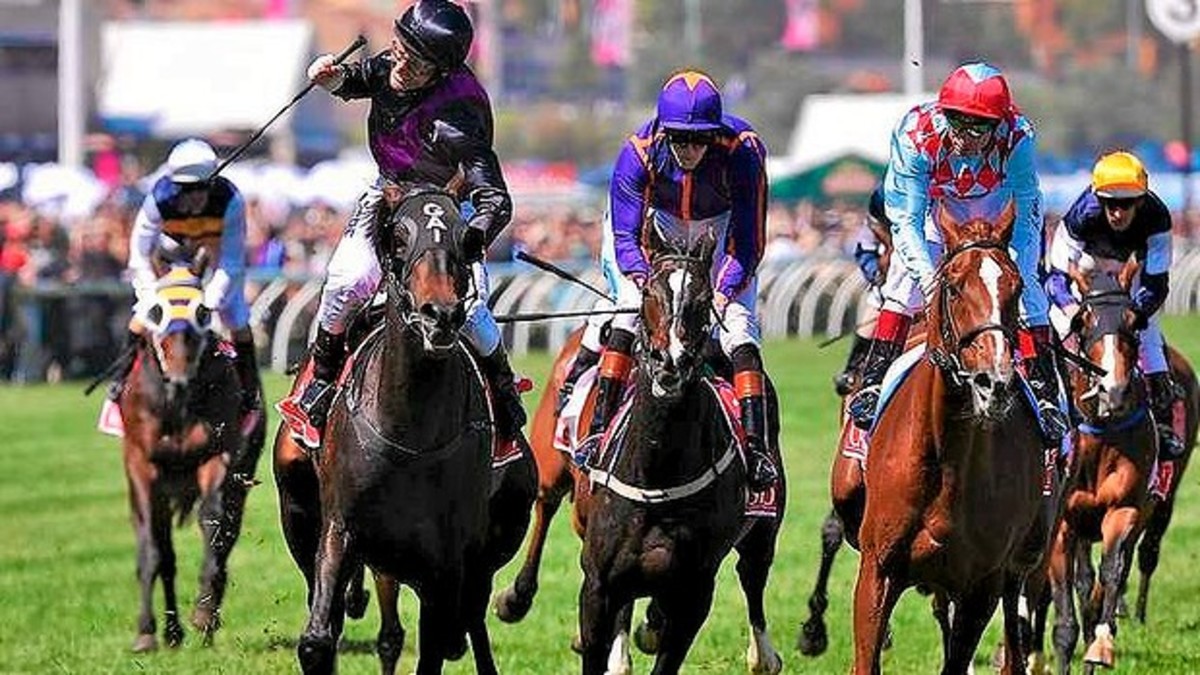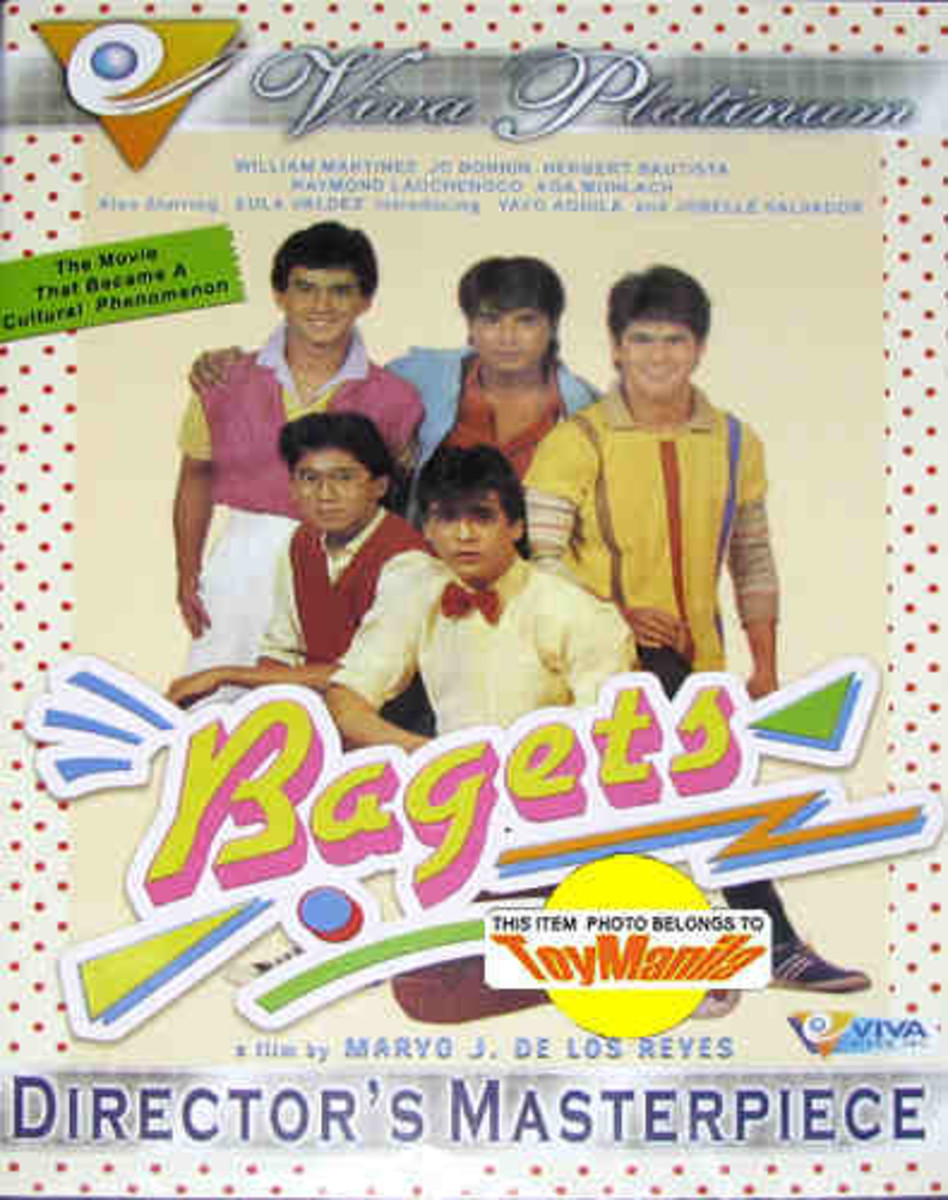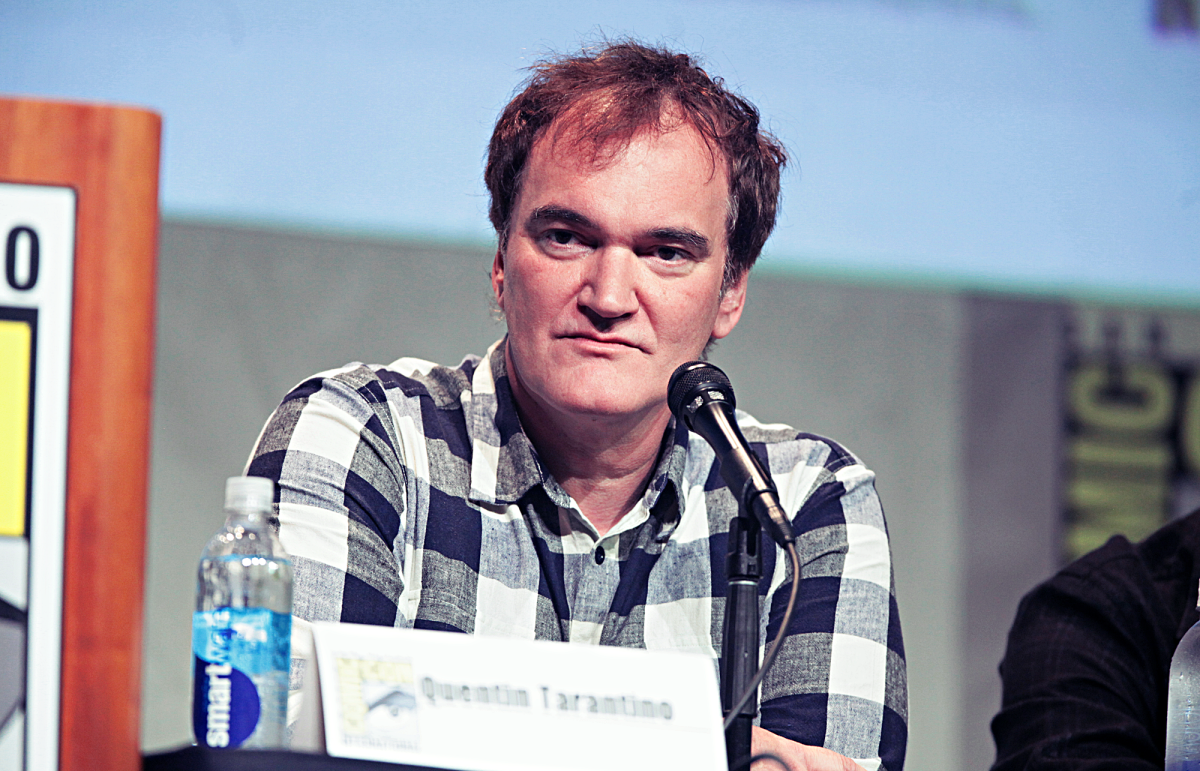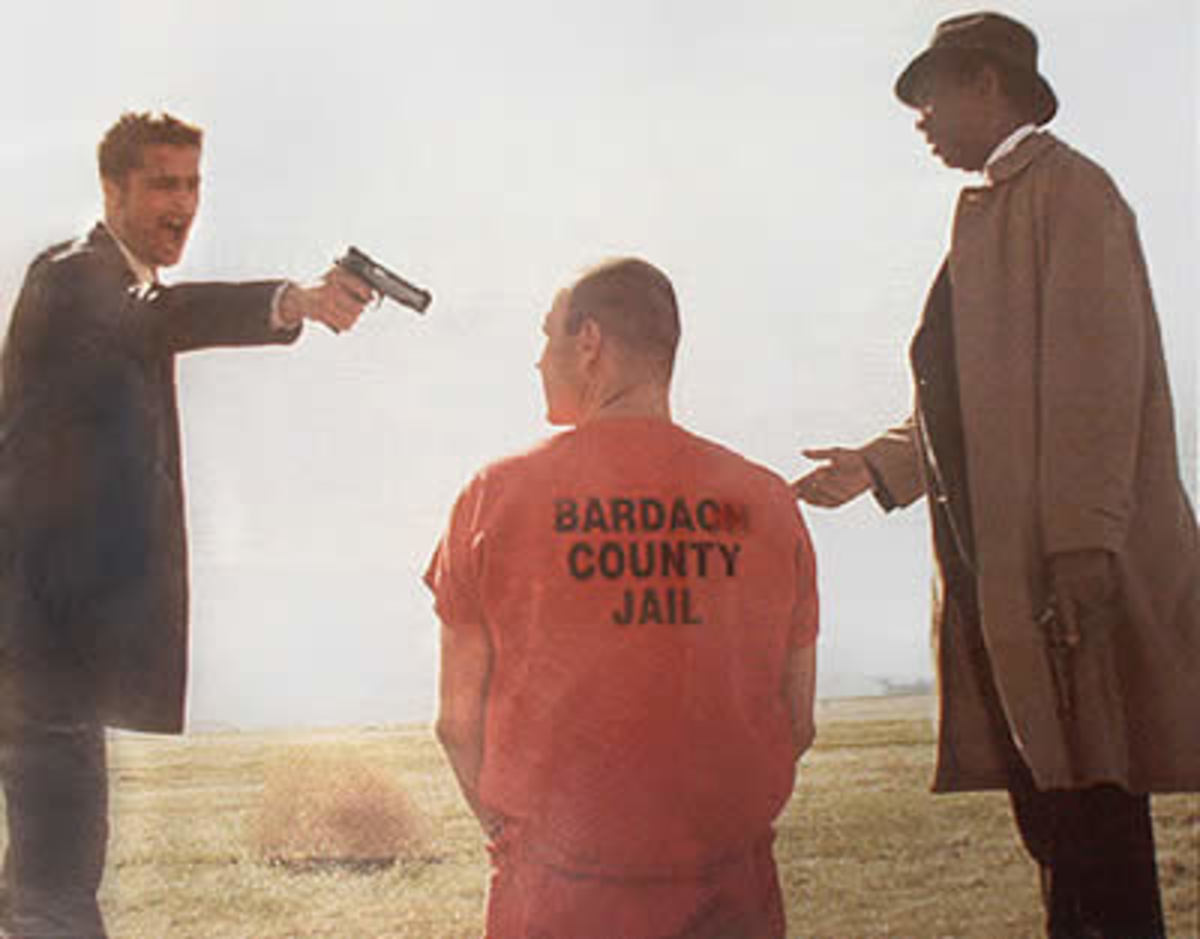Secretariat - Some Risks Are Worth Taking

What if you knew a secret that few others knew or could even understand. What if there was something in your life that so captured your hopes, dreams and imagination that you risked everything to see the dream develop into exciting reality?
There is something mysterious and awe-inspiring about a magnificent stallion and from the first quote from the book of Job in the beginning of the movie, that awe builds into a crescendo of excitement for the horse with the big heart that shattered the records forever.
Secretariat the movie is a mostly accurate account of the incredible Triple Crown winning chestnut stallion and his owner Penny Chenery Tweedy, played elegantly by Diane Lane. The real life Penny was a housewife in Colorado raising four children when destiny called her back to a life she had only seemingly left behind.
Publicly Penny Chenery gave the impression she was a typical 60's housewife--“I was doing diapers and meals,” she recalls. “I was a wife and mother doing what I was supposed to do. I was playing the acceptable role. I didn’t have any personal ambitions. It didn’t occur to me that I’d have a career."
For those who knew her, she was far more capable and ambitious than she professed. Like Secretariat she was a thoroughbred. Helen Bates "Penny" Chenery Tweedy was born in New Rochelle NY and raised in Virginia. Unlike her brother Hollis and her sister Margaret, Penny was "daddy's girl" and shared Christopher Chenery's deep love of horses. Since she was five, she spent her Saturdays and Sundays either on horseback or watching her father's polo matches and fox hunts.
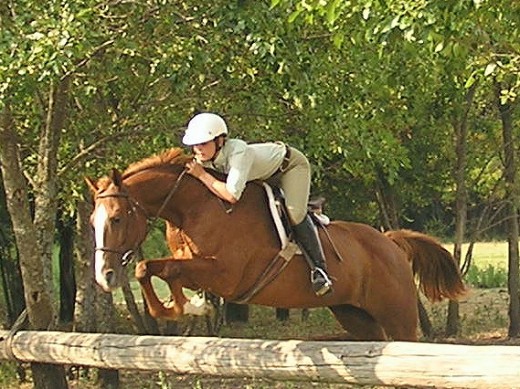
In contrast, Penny's father Christopher grew up in poverty, saving shoe leather in the summer by going barefoot. He determined his family would not have to live that way and demonstrating a drive and business sense that would set him apart, became a successful public utilities executive. “We were probably one of the wealthiest families in this small town, and that sets you apart a little bit,” Chenery related. “During the Depression, everybody still needs water and gas and light. So we didn’t suffer. I was young, but I remember I was the only one in the class who got new dresses.”
Christopher, in the mid 1930s, was able to purchase back The Meadow, which his cousin had lost in 1922. He built stables and a home and brought back a pride of ownership to the thousands of acres. Penny attended Madeira School in nearby Fairfax, Virginia and then Smith College. She volunteered some time as a Red Cross "donut dollie" in France and Germany during World War II and worked for a naval architectural firm that built the Normandy invasion’s landing craft. After graduating from Smith College Penny entered Columbia School of Business where she met her husband Jack Tweedy, (Dylan Walsh) a Columbia law student. As Meadow Stable started producing competitive Thoroughbreds, Chenery was involved as a board member, but the Tweedy family moved to Boulder and by 1950 she was pregnant with their first of four children.
While his daughter was raising children, Christopher Chenery was building The Meadow into a breeding and racing phenomenon. Champion horses, from what became known as Meadow Stable, won
more than 200 races from 1951 to 1960 with purses totalling more than $2.5 million. But by the
late 1960s, Christopher Chenery's winning streak came to an end. An
Alzheimer-like senilty took a toll on his judgment. He sold four of his
most valuable broodmares for a mere $40,000 apiece. The Meadow began to
lose money and reputation and when in 1968 her father was admitted to
the hospital where he would spend the last few years of his life, Penny
was selected by the Meadow Stable board to replace him.
“I knew that, of (his three) children, I had been groomed to succeed Dad. So I just thought, ‘Well, there’s a lot to do here, but this is what I’m supposed to do.’ I really didn’t doubt myself.”
Penny Chenery Tweedy was 45 when she determined to leave Denver and manage The Meadow. Her brother and sister wanted to sell the farm and the 130 breeding and racing stock their father owned. “If you run the farm,” Hollis Chenery said, “you’re going to be the only one having the fun. We ought to sell everything and make some investments that will involve all three of us.” Penny laughs as she recalls: “It was time,” she said, “to play the daddy card.” If their father were still healthy they all knew what he would do. “The land has supported the horses, and the horses have supported the land.”
Reluctantly, her brother and sister agreed to allow her to try it on a trial basis. Soon after arriving, Penny saw that the Chenery stable and farm was seriously losing money and if she didn't act quickly, it would not be able to sustain itself. Penny talked to her husband and their children and told them that she needed to stay for a while on the farm to get things back in order. With the help of her father’s longtime assistant, Mrs. Elizabeth Ham (Margo Martindale), Penny assumed the responsibilities of getting the farm back on track.
To bring herself up to speed, Penny immersed herself in The Blood-Horse, Thoroughbred Record and Daily Racing Form, studying as if she were facing finals at Columbia. She also met with one of her father’s closest friends, Bull Hancock (Fred Thompson), who owned Claiborne Farm and he quickly became a trusted advisor.
Penny began making some hard decisions as she began to learn the more subtle, but vital sides of the horse business. I think I was able to achieve things that helped women in their quest for acceptance as functioning individuals in the business world or in the sporting world, the industry is a very old-fashioned one, and they didn’t like having a woman in charge. . . . I did, when I had to, go in and say, "This is what’s going to happen."
Meadow Stable was one of the few farms who both bred and raced their offspring which meant that training was as important as breeding. Chenery didn’t like how Casey Hayes, her father's long time trainer overworked the horses and thought he should have spoken up during the underselling of the four broodmares. Penny related: “The biggest thing that I did was to fire Casey and to hire Roger Laurin and then, when he left, to hire his father Lucien” in 1971.
Penny followed her father's breeding strategy and bred Iberia with First Landing, a match that created Riva Ridge. While the movie focuses on Secretariat, it was Riva Ridge's impressive wins that took early pressure off the finances of the farm. Her father had also formed a deal with Ogden Phipps, owner of Bold Ruler, at Claiborne. According to a "coin toss" arrangement, whoever won the toss picked one of the two offspring or unborn foal and the loser kept the other two in lieu of a stud fee.
Penny made a decision to breed her two mares Hasty Matelda and Somethingroyal to Bold Ruler. Something told her to breed Somethingroyal for the second time to Bold Ruler as part of the "coin toss" arrangement and this decision would make history. Phipps won and chose the filly of Somethingroyal and Penny was left with the unborn and unknown foal.
In the movie, both Penny and the seasoned trainer Lucian have an almost presicient instinct about the unborn foal. In a dramatic birth scene, Lucian (John Malkovich) is astounded by the speed at which Secretariat gets up and starts walking. It is almost as if the foal can't wait to start moving toward his appointment with destiny.
Christopher Chenery, 86, died the first week of January in 1973, before Secretariat embarked on his 3-year-old season. Just as the Chenery heirs were faced with paying a $6 million estate tax, Secretariat was syndicated for breeding purposes for $6.08 million.
“That saved the day,” Penny Chenery said. “But if my father had died just two months sooner, it would have been even worse. There would have been nothing we could have done but sell Secretariat outright.”
The movie for me was as much about Penny as it was about Secretariat. Both of them had impressive bloodlines. Secretariat's father, Bold Ruler demonstrated speed and impressive wins and Secretariat's mother, Somethingroyal was the product of a sire thought to be one of the fastest long distance runners in American racing history. Even Secretariat's size and chestnut color reminded everyone who knew racing of the legendary Man o' War.
Lucien Luarin kept his growing excitement about Secretariat's training from Penny, saying things like: "Your big Bold Ruler colt don’t show me nothin. He can’t outrun a fat man.” When Secretariat finished fourth in his maiden race at New York’s Aqueduct Racetrack, Laurin threw a chair across the box seat. “It surprised me because Lucien had not told me what he really thought,” Penny said. “It was then I started to pay close attention, because Lucien knew how to lose — ‘You win some; you lose some.’ But the explosive reaction really surprised me. I said, ‘Maybe I need to take another look at this horse.’”
Penny took a risk hiring the semi-retired trainer, but he had an intuition his son Roger did not have. She had fired one trainer who overworked the horses, but allowed Lucien to work Secretariat even harder because he said the big horse needed it. Circulatory tests and later measurements attest to the fact that Secretariat had one of the largest hearts in racing history.
The long backstretch of the Belmont Stakes is a champion killer, a test of a three-year-old heart, a career ender. The big red machine, mighty Secretariat, met the challenge head-on, while Sham, his major threat to supremacy that season, never raced again. ~ Barbara Anne Hellberg
When Secretariat was two, people said he could never be a fast horse because he was too fat. Experts said he might run a short race but he would have trouble winning a long distance one like the Kentucky Derby or the Belmont Stakes.
Racing fans will always talk about Secretariat’s Kentucky Derby time.
First, because his final time of 1:59 2/5 broke the track record for 1
1/4 miles in the world’s most important horse race. And second, because
The Big Red Horse ran faster every quarter mile of the race, just
building power like a locomotive and finishing like a jet. ~ Secretariat.com
When is it acceptable to take a risk? The story of Secretariat and Penny Chenery is a powerful portrayal of extraordinary personal and lasting success through responsible risk taking. Some of the principles we can get from their experiences are the following:
1. Love something enough to warrant taking a risk.
Both Penny Chenery and her father Christopher loved horses and the idea of competition and thoroughbred racing. When her brother and sister wanted to sell the farm, Penny appealed to them using the love their father had for the farm and horses but it was her own personal desire to show what she and her stallion could do that kept her motivated and moving forward.
2. Draw from your experience.
When you love something or someone, chances are you will spend some time learning about it or them. Penny spent her free time riding and attending the horse competitions as well as being on the board of the Meadow Stables when she was older. Her experience gave her the insight to know when a trainer was off, what a business needed and which direction to take it.
3. Be prepared.
Both the Boy Scouts and Davy Crockett who said "Be sure you are right, then go ahead," knew the virtue of being prepared. Penny not only had experience, but she also learned business strategy and principles at Columbia. She devoured all the trade publications and enlisted the advice of trusted advisers. She prepared for the expected estate tax by setting up Secretariat's breeding syndication.
4. Have a goal worth the risk.
Penny not only had her own reputation at stake, she also faced the possibility of losing the farm her father had poured his life into. Few of us put ourselves in that position, but sometimes the prize is worth the sacrifice. In the movie, Secretariat looks the media in the eye and poses as if to say "I know what I can do and you better pay attention." Secretariat won the triple crown's final race by 31 lengths with a time no horse has ever beat. He was not just racing, he was making a statement. The jockey never used his whip in the final stretch. It was for this reason that he is only non-human to be included in the 100 Greatest Athletes of the 20th Century.
The
torment of precautions often exceeds the dangers to be avoided. It is
sometimes better to abandon one's self to destiny. ~ Napoleon Bonaparte
It is only in adventure that some people succeed in knowing themselves - in finding themselves. ~ André Gide


